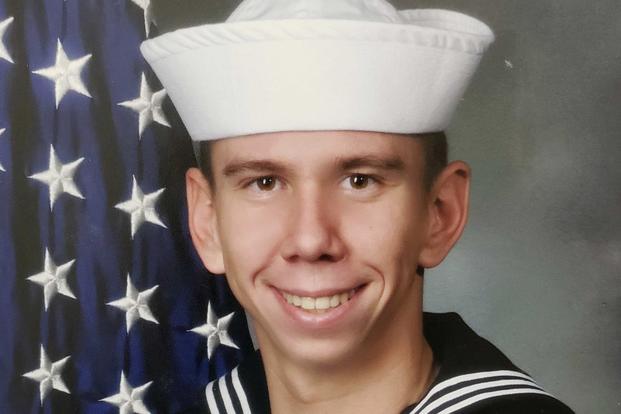In 2018, Navy Aircrew Aviation Electrician's Mate Striker Brandon Caserta died tragically, taking his own life on the flight line at Naval Air Station Norfolk in Virginia.
This week, Congress is poised to pass a law designed to give service members like Caserta better access to mental health evaluations and treatment.
Under the fiscal 2022 National Defense Authorization Act, passed by the House on Tuesday and expected for a vote in the Senate this week, troops will be able to refer themselves for a mental health evaluation and commanders will be required to make it happen.
Read Next: Troops Booted for Refusing Vaccine Guaranteed at Least a General Discharge Under Defense Bill
A provision in the legislation allows troops to trigger an evaluation by asking their commanding officer or supervisor, E-5 and above, for one.
Military leaders then will be required to make sure the service members receive a mental health assessment "as soon as practicable." They also must contact the mental health provider to verify scheduling and provide them the service member’s name and contact information.
According to the legislation, the service member can ask for a referral for any reason, "including on the basis of a concern relating to fitness for duty, occupational requirements, safety issues, significant changes in performance or behavioral changes that may be attributable to possible changes in mental status."
The legislation, originally introduced by Marine Corps veteran Rep. Seth Moulton, D-Mass., in 2020 and again, this year, by Moulton and Navy veteran Sen. Mark Kelly, D-Ariz., as the Brandon Act, is designed to ensure that service members have easier access to health care without concern for retaliation from their higher-ups or worries about their careers.
According to Navy records and personal correspondence, Caserta was assigned his electrician’s mate rating after he broke his leg during Basic Underwater Demolition/SEAL School in 2016 and was unable to finish the course.
He was sent to Helicopter Sea Combat Squadron 28 in Norfolk, Virginia, where he worked under a lead petty officer known to be verbally abusive to sailors. He also had difficulties completing requirements for his rating as a result of despair over his circumstances.
Facing additional obstacles, including problems getting medical appointments and receiving care, he became despondent. On June 25, 2018, Caserta took his own life, leaving behind a note expressing his anger at the Navy and his unit.
"I want to see as many people fired, kicked out or, at the very least, lose rank," he wrote.
His parents, Teri and Patrick Caserta, of Peoria, Arizona, have lobbied since for legislation to protect service members in crisis and give them confidential access to mental health treatment.
Patrick Caserta said Wednesday that he and Teri are pleased that the provision was included in the fiscal 2022 NDAA.
"The Brandon Act will now start to save lives," Patrick Caserta wrote in an email to Military.com. "It has been a long hard road to get where we are now."
Brandon Caserta's death was one of 325 suicides among active-duty personnel that year, including 68 in the U.S. Navy. The suicide rate has increased by 31% among active-duty military personnel since 2017. That year, the rate was 21.9 per 100,000 active-duty personnel.
The Defense Department maintains that the military rates are comparable to civilian rates when adjusted for age and gender. Prior to the wars in Iraq and Afghanistan, the military rates were a fraction of the adjusted civilian rates, and military service was seen as a protective factor against suicide.
Patrick Caserta added that he is grateful for Moulton and Kelly, whom he said worked tirelessly to get the provision included in the defense bill.
"Without their advocacy and seeing the need for mental health in the military, The Brandon Act would not be on the NDAA. Brandon is definitely looking down on all of us smiling this big, beautiful smile!" he said.
If you or someone you know needs help, the Veterans Crisis Hotline is staffed 24 hours a day, seven days a week, at 800-273-8255, press 1. Services also are available online at www.veteranscrisisline.net or by text, 838255.
-- Patricia Kime can be reached at Patricia.Kime@Monster.com. Follow her on Twitter @patriciakime.
Related: Suicides Among US Troops Rose 15% in 2020, With Firearms Closely Tied to Deaths















